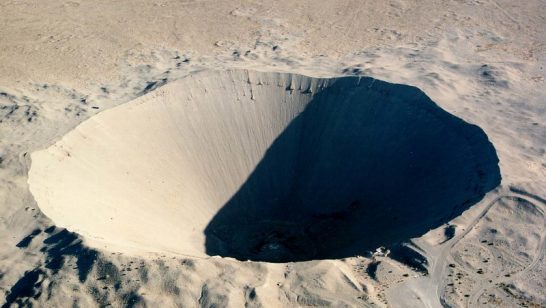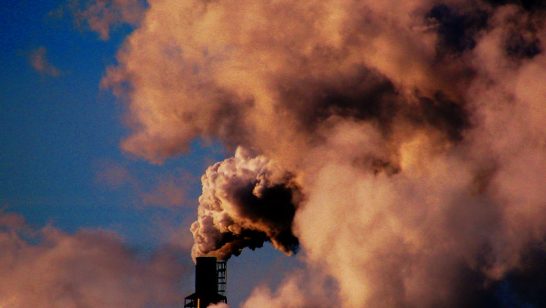
ELN Senior Network Member Lord Hannay of Chiswick, gave this keynote address to Nuclear Weapons and Climate Change, an intergenerational symposium at Central Hall Westminster and online on September 9, 2021. Lord Hannay, who co-chaired ELN’s Go Big Action Group on New START extension in 2020-21, lays out priorities for the international community in dealing with these twin threats to humanity.
Nuclear weapons and climate change are two of the great challenges facing the international community. I nearly said “the” two challenges facing us but, given the continuing pandemic, that would have been to invite ridicule. But those two are the great medium to long term challenges and our success, or lack of it, in mastering them will be with us for far longer than the pandemic and its aftermath.
Today’s conference is also timely as it marks the International Day against Nuclear Testing. The good news on that issue is that we do now have a de facto moratorium on nuclear testing observed by all except North Korea. The less good news is that it is not a de jure binding international treaty subscribed to worldwide. So it remains fragile and vulnerable. And we must therefore not give up on efforts to achieve the necessary ratifications to bring the CTBT into force and to give the CTBTO the mandate it needs to carry out its work.
Timing good – and place good too. Because this Westminster Hall where some of us are gathered was the venue 75 years ago for the first ever meeting of the UN General Assembly. Who would have bet then that the UN would still be there, functioning, however imperfectly, in 2021. After all its predecessor, the League of Nations, survived for a mere 20 years.
This time last year, not many people would have stated with confidence that the prospects for nuclear arms control and disarmament would have improved by now, not continued to erode as they had done for a number of years. After all, the possibility of Donald Trump, who had contributed so markedly to that process of erosion, being re-elected was still a real one. And the New START Treaty limiting US and Russian strategic weapons was due to expire in February of this year. In the event President Biden was elected and New Start has been extended for another five years. So we have gained a breathing space. But it is no more than that. And the damage done by what occurred in the previous period – the demise of the INF and Open Skies treaties – remains, as does the continuing challenge to the Nuclear Non-Proliferation Treaty by the nuclear programmes of North Korea and Iran.
So what need to be the priorities in the years ahead? Well a successor to New Start has to be negotiated and it is surely in the interest of all of us that the cap on US and Russian strategic weapons is set at a lower level than the level way beyond what is needed to provide effective deterrence which is in the current treaty. Then the agreement with Iran, the JCPOA, hangs by a thread still. It is surely crucially important that the ongoing talks in Vienna lead to the US returning to the agreement and to Iran reversing its departures from its terms. And a resumption of the long-stalled negotiation of a Fissile Material Cut- Off Treaty, in theory accepted by all the recognised nuclear powers, would be a big step forward.
Most importantly of all, perhaps, we do need to see the engagement of a dialogue on strategic stability between the five recognised nuclear weapon states. The P5, as they are known, agreed to this dialogue in the context of the twice postponed Nuclear Non- Proliferation Review Conference, but so far it has not taken place. The Conference is now being re-scheduled and so it is high time to engage that dialogue. It will not produce instant results, of course, but it is surely the best way to draw China into a serious discussion of nuclear issues, an involvement now long overdue, as we were recently reminded by evidence emerging of a major expansion of Chinese missile launch capabilities. If that dialogue were to open up space for another look at the concept of No First Use and at the undertakings by nuclear weapon states not to use those weapons against any signatories of the NPT in good standing, that would be valuable. And if other weapons possessors such as India and Pakistan could be involved in such dialogues, that would be even better. This sort of approach could well help to avoid another failed NPT Review Conference when it does take place.
The other great challenge we are looking at today is climate change, with the crucial COP 26 conference in Glasgow just a few weeks away. The issues of coal and other fossil fuels, and of financial support for developing countries, remain unresolved, along with many technically detailed aspects of what is needed if global warming is not to remain, as it still is, on an unsustainable path. Most important will be a process that ensures that any broadly successful outcome to COP 26 is actually implemented and monitored. That did not happen with the much praised Paris Accords and, as a result, the world has continued to drift away from mastering climate change and we can see the consequences in the form of floods, storms and droughts in all four corners of the earth. And sea rise continues, fed by the melting polar ice caps at a rate that will cause disasters worldwide.
What does need to be recognised, I would suggest, is that we cannot afford to say that two or three global challenges of the sort I have outlined is just too many to ask the international community to take on at one time. We do not realistically have the choice to address them sequentially. We need to find the political will and the resources to deal with them now.
The opinions articulated above represent the views of the author(s) and do not necessarily reflect the position of the European Leadership Network or any of its members. The ELN’s aim is to encourage debates that will help develop Europe’s capacity to address the pressing foreign, defence, and security policy challenges of our time.
Image: Flickr, Number 10



